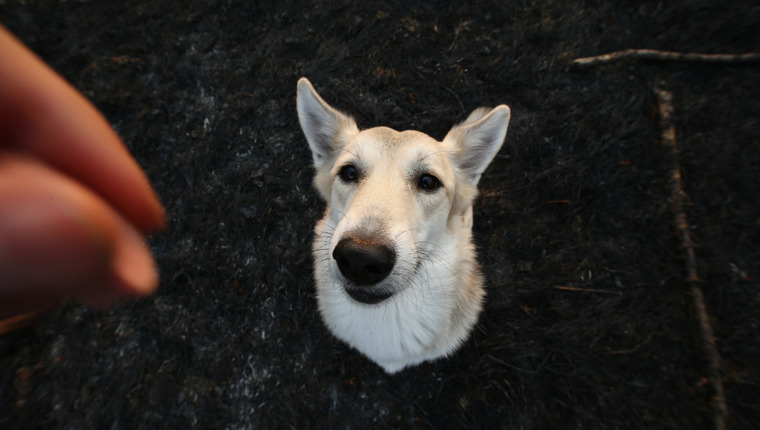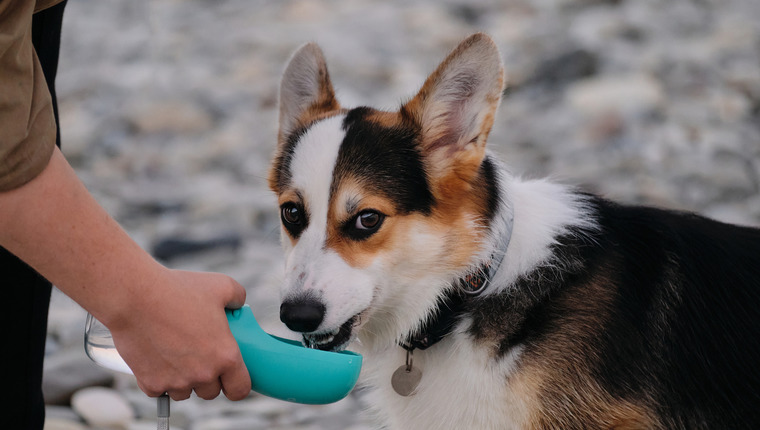
Dogs can differentiate between cruel and clumsy behavior, according to a new study.
Researchers at the University of Vienna found that dogs have more patience with people who accidentally drop treats than with those who intentionally pull them away.
Showcasing Real Intelligence
There aren’t many animals capable of evaluating human behavior like this. But, dogs are in good company. Other animals who’ve displayed this sort of ability include chimpanzees, capuchin monkeys, and African grey parrots. These animals are all known for their intelligence.
The ability to read the intentions of others is known as theory of mind, and scientists once thought it was exclusive to humans only. Human children begin to develop it when they reach one year old.
Previous studies have shown that dogs prefer people who are more generous with food, or more friendly, but this study goes further. It was published in Proceedings of the Royal Society B: Biological Sciences.
Clumsy vs Cruel
Researchers brought together 96 dogs. Each one was faced with one of two possible scenarios. The dog would be on one side of a transparent screen with small holes in it at nose height. Then, there would be a human on the other side. Either the human would dangle a piece of sausage before pulling it out of reach, or they would ‘accidentally’ drop it.
Then, a machine learning algorithm trained to track the dog’s body language would analyze the footage.
With the researchers who pulled the sausage away, the dogs would make less eye contact, wander around more, and sit or lie down more often. In contrast, with the researchers who dropped the sausage, they’d continue making eye contact. And, they’d stay closer to the screen too.
The dogs also wagged their tails more on their right side when interacting with the ‘clumsy’ humans. This is a behavior scientists associate with relaxed and happy pups. “They have more positive emotions towards the clumsy experimenter, which might indicate that they indeed understand that the experimenter is willing, but just too clumsy, to give them food,” says study author Christoph Völter.









